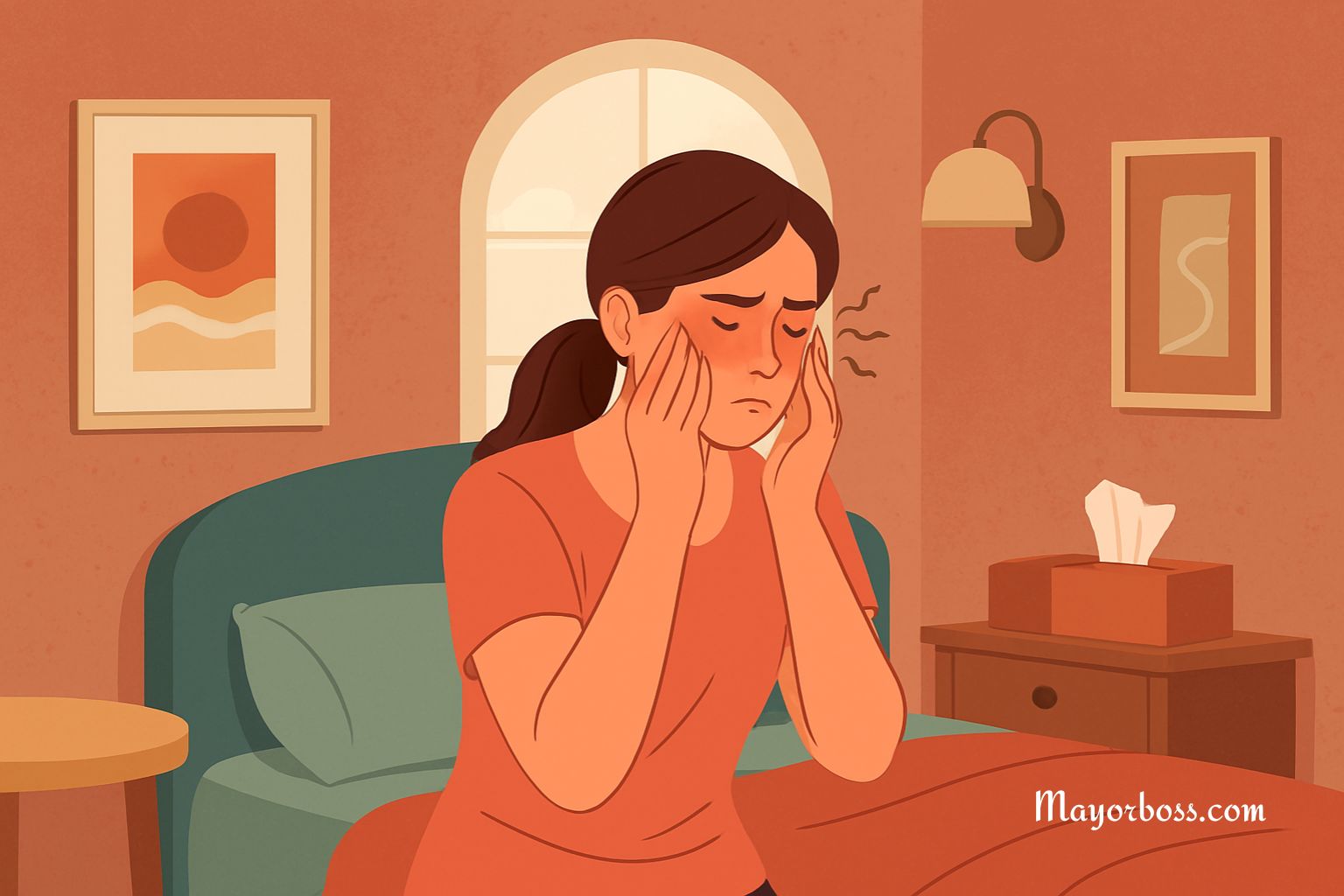Why You Keep Getting Sinus Infections (And How to Stop Them)
Sinus infections, also called sinusitis, can make you feel miserable. They cause pressure in your face, a stuffy or runny nose, headaches, and often fatigue. If you keep getting them over and over again, it’s not just annoying—it may be a sign something more serious is going on.
In this article, we’ll break down why sinus infections keep coming back and what you can do to prevent them.

What Is a Sinus Infection?
A sinus infection occurs when the tissue lining your sinuses becomes swollen and inflamed. Normally, sinuses are filled with air. But when they get blocked, they can trap mucus and germs. That’s when an infection can begin.1
There are two types of sinus infections:
- Acute sinusitis: lasts less than four weeks.
- Chronic sinusitis: lasts more than 12 weeks, even with treatment.
The symptoms of sinus infection can include:
- Stuffy or runny nose
- Facial pressure or pain
- Headaches
- Coughing
- Thick nasal discharge
- Loss of smell or taste
- Fever
If you’re getting several sinus infections a year, or if one infection seems to never fully go away, it’s time to look closer.2
Common Reasons You Keep Getting Sinus Infections
1. Allergies
Allergies are a top cause of repeat sinus infections. Pollen, dust mites, mold, and pet dander can all trigger inflammation in the nose and sinuses. This inflammation blocks drainage, creating the perfect environment for infection. 3
2. Nasal Polyps
These are small, soft growths that can form in your nasal passages or sinuses. They make it hard for mucus to drain properly, causing repeated infections.
3. Deviated Septum
If the wall between your nostrils is off-center, it can block one side of your nose and sinuses. This makes it easier for infections to take hold.
4. Weakened Immune System
Some people have immune systems that don’t fight off infections very well. This can be due to chronic illness, certain medications, or immune disorders. If your body can’t clear an infection quickly, it can linger and come back.
5. Respiratory Infections
A cold or the flu can set off a sinus infection. If you catch a lot of colds, especially during winter, this may explain why you keep getting sinus problems.
6. Environmental Irritants
Tobacco smoke, strong odors, and air pollution can irritate your nasal passages. This constant irritation can inflame your sinuses and increase your risk of infection.
7. Dental Issues
Infections in the upper teeth can spread to nearby sinuses. If you’ve had a root canal, dental abscess, or chronic toothache, this might be the hidden cause.4
How to Stop the Cycle of Sinus Infections
Now that we’ve covered the causes, here’s what you can do to break the cycle:
1. Treat Underlying Allergies
See an allergist if you suspect allergies are the problem. Managing them with antihistamines, nasal sprays, or allergy shots can help reduce inflammation and prevent sinus infections.
2. Rinse Your Sinuses
Saline nasal irrigation—like using a neti pot or squeeze bottle—helps flush out mucus, bacteria, and allergens. It also keeps the sinus passages moist. Use sterile or distilled water, and clean your device after every use to avoid introducing new bacteria.5
3. Stay Hydrated
Drinking enough water helps thin out mucus, making it easier for your sinuses to drain. Avoid alcohol and caffeine, which can dry you out.
4. Avoid Smoking and Pollutants
If you smoke, quitting can dramatically reduce sinus issues. Also try to avoid secondhand smoke and heavily polluted environments.
5. Manage Infections Promptly
Treat colds early to stop them from turning into sinus infections. Rest, hydrate, and use over-the-counter decongestants only as directed.
6. Address Structural Issues
If you have nasal polyps or a deviated septum, your doctor may recommend surgery. These procedures can improve airflow and drainage, reducing the likelihood of chronic infections.
7. Boost Your Immune Health
Eat a balanced diet, get regular exercise, and sleep well. These habits strengthen your immune system and help your body fight off infections more effectively.
When to See a Doctor
Recurring sinus infections are not something to ignore. If you’ve had more than four sinus infections in a year, or one that lasts more than 12 weeks, you should talk to a healthcare provider. They may recommend allergy testing, a CT scan of your sinuses, or a referral to an ENT (ear, nose, and throat specialist).
References
- https://www.ncbi.nlm.nih.gov/books/NBK279485/ ↩︎
- https://acaai.org/allergies/allergic-conditions/sinus-infection/ ↩︎
- https://www.mayoclinic.org/diseases-conditions/chronic-sinusitis/symptoms-causes/syc-20351661 ↩︎
- https://www.mayoclinic.org/diseases-conditions/acute-sinusitis/expert-answers/toothache/faq-20058299 ↩︎
- https://www.healthline.com/health/how-to-get-rid-of-sinus-infection ↩︎
